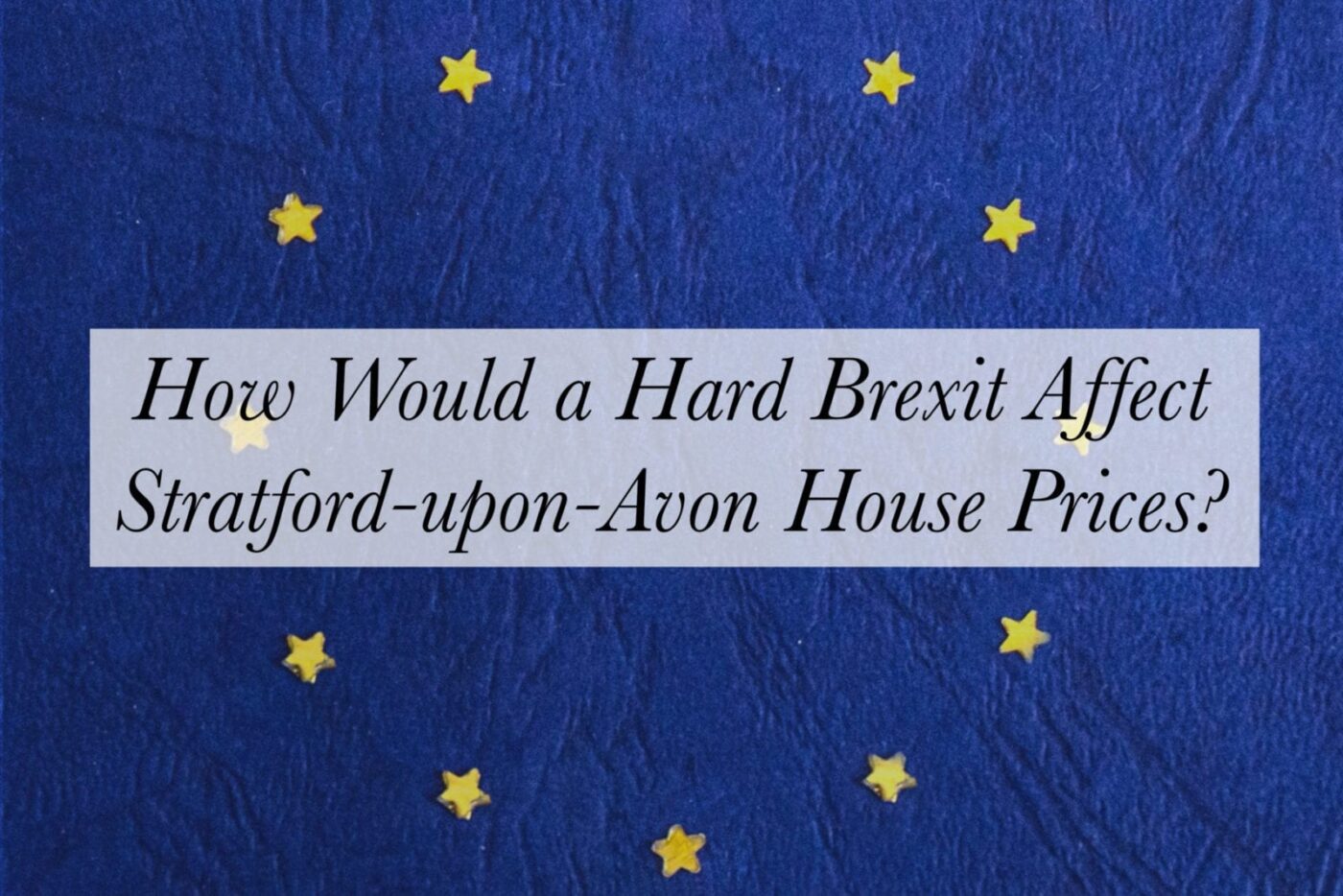I have been asked a number of times recently what a hard Brexit would mean to the Stratford-upon-Avon property market. To be frank, I have been holding off giving my thoughts, as I did not want to add fuel to the stories being banded around in the national press.
However, it’s obviously a topic that you as Stratford-upon-Avon buy-to-let landlords and homeowners are interested in …
So I am going to try and give you what I consider a fair and unbiased piece on what would happen if a hard Brexit takes place in March 2019.
After the weather and football, the British obsession on the UK property market is without comparison to any other country in the world. I swear The Daily Mail has the state of the country’s property market on its standard weekly rotation of front-page stories! Like I have said before on my blog, there are better economic indexes and statistics to judge the economy (and more importantly) the property market. If you recall, I said the number of transactions was just as important, if not more, as a bellwether of the state of the property market.
Worries that the Brexit referendum would lead to a fast crash in Stratford-upon-Avon (and national) property values were unfounded, and the growth of property values in Stratford-upon-Avon have continued to increase since the referendum in the summer of 2016.
In fact recent data shows Stratford-upon-Avon property market has seen an increasing number of people selling and moving and property values have continually risen at a healthy rate in over the last few years compared to the first half of this decade (2010 to 2015).
The average Stratford-upon-Avon house price has risen by 6.7% since the EU Referendum…
…however with an average number of 158 houses sold each month in 2018, the projected number of property transactions this year is likely to finish close to 1,424 (i.e. the number of people selling their home)…which is just under half of transactions in 2017…and only slightly lower than the long term 12 year average of 1,996 transactions in the local council area.

*NB: Data for property transactions in 2018 only available up to July 2018 from HM Land Registry
It appears that there is a degree of uncertainty and hesitancy amongst Stratford-upon-Avon buyers and sellers as the March 2019 Brexit deadline looms. If there was a large economic jolt, that could be a different game, yet how likely is that?
The property market is mostly influenced by interest rates and salaries.
A hard Brexit would subdue wage growth to some degree, yet the level of the change will depend on the undetermined type of Brexit deal (or no deal).
If trade barriers are imposed as a result of a hard Brexit imports will become more expensive, inflation will rise, and growth will fall. Since Britain isn’t in the Euro this effect could be tempered by the exchange rate of the Pound against the Euro.
In plain language, a hard Brexit will be worse for house prices than a deal.
So why did the Governor of the Bank of England suggest a disorderly hard Brexit would affect house prices by up to 35%?
I mean it was only nine years ago we went through the global financial crisis with the credit crunch. Nationally, in most locations including Stratford-upon-Avon, property values dropped in value by 16% to 19% over an 18-month period. Looking at the previous graph, a similar percentage drop would take us back to the property value levels we were achieving in 2014.
And let’s not forget that the Bank of England introduced some measures to ensure we didn’t have another bubble in any future property market. One of the biggest factors of the 2009 property crash was the level of irresponsible lending by the banks. The Bank of England Mortgage Market Review of 2014 forced Banks to lend on how much borrowers had left after regular expenditure, rather than on their income. Income multipliers that were 8 or 9 times income pre-credit crunch were significantly curtailed (meaning a Bank could only offer a small number of residential mortgages above 4.5 times income), and that Banks had to assess whether the borrower could afford the mortgage if interest rates at the time of lending rose by three percentage points over the first five years of the loan … meaning all the major possible stumbling blocks have been mostly weeded out of the system.
So, what next?
Many Stratford-upon-Avon homeowners might wait until 2019 to move, meaning less choice for buyers, especially in the more desirable areas of Stratford-upon-Avon. For Stratford-upon-Avon landlords, tenants are also likely to hang off moving until next year, although I suspect (as we had this on the run up to the 2015 General Election when it was thought Labour might get into Government), during the lull, there could be some Stratford-upon-Avon buy-to-let bargains to be had from people having to move (Brexit or No Brexit) or the usual panic selling at times of uncertainty.
Brexit, No Brexit, Hard Brexit…in the whole scheme of things, it will be another footnote to history in a decade. We have survived the Oil Crisis, 20%+ Hyperinflation in the 1970’s, Mass Unemployment in the 1980s, Interest Rates of 15% in 1990’s, the Global Financial Crash in 2009…whatever happens, happens.
People still need houses and a roof over their head. If property values drop, it is only a paper drop in value…because you lose when you actually sell. Long term, we aren’t building enough homes, and so, as I always say, property is a long game no matter what happens – the property market will always come good.
Growth in UK property values as well as in Stratford-upon-Avon seems fated to slow over the next five to ten years, whatever sort of Brexit takes place.


